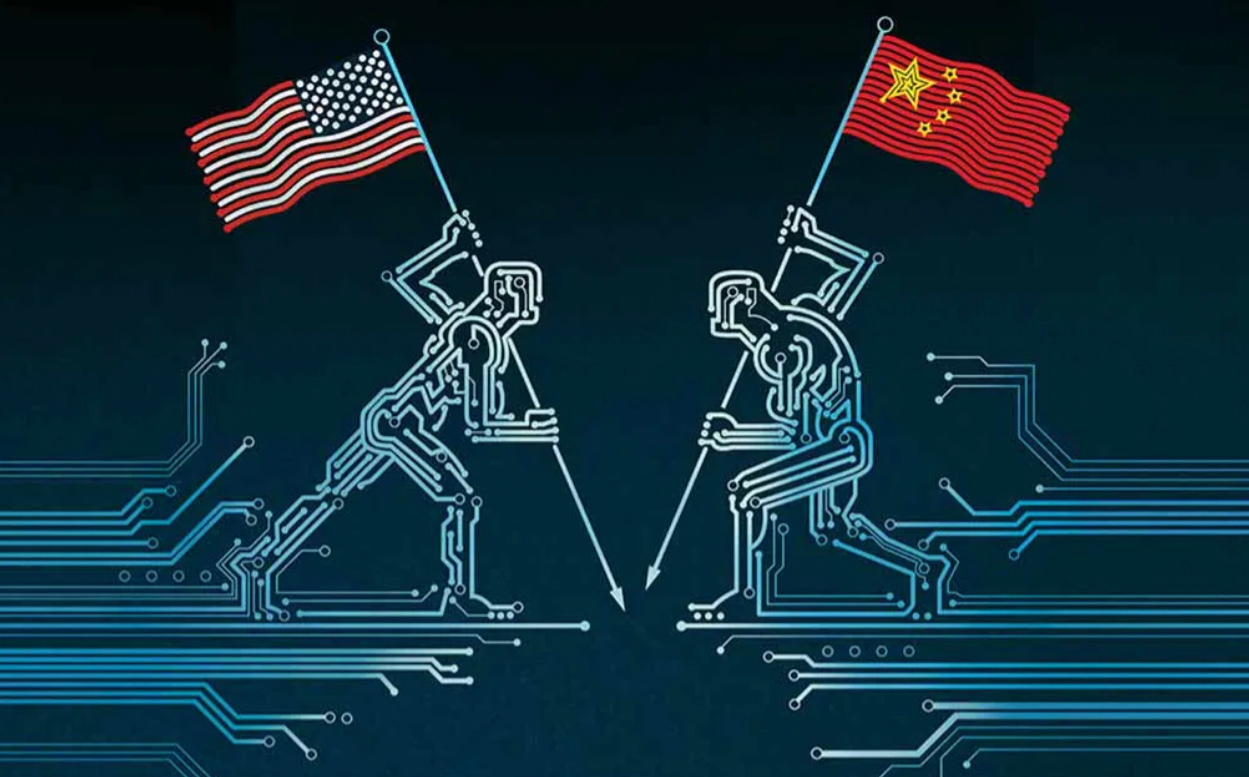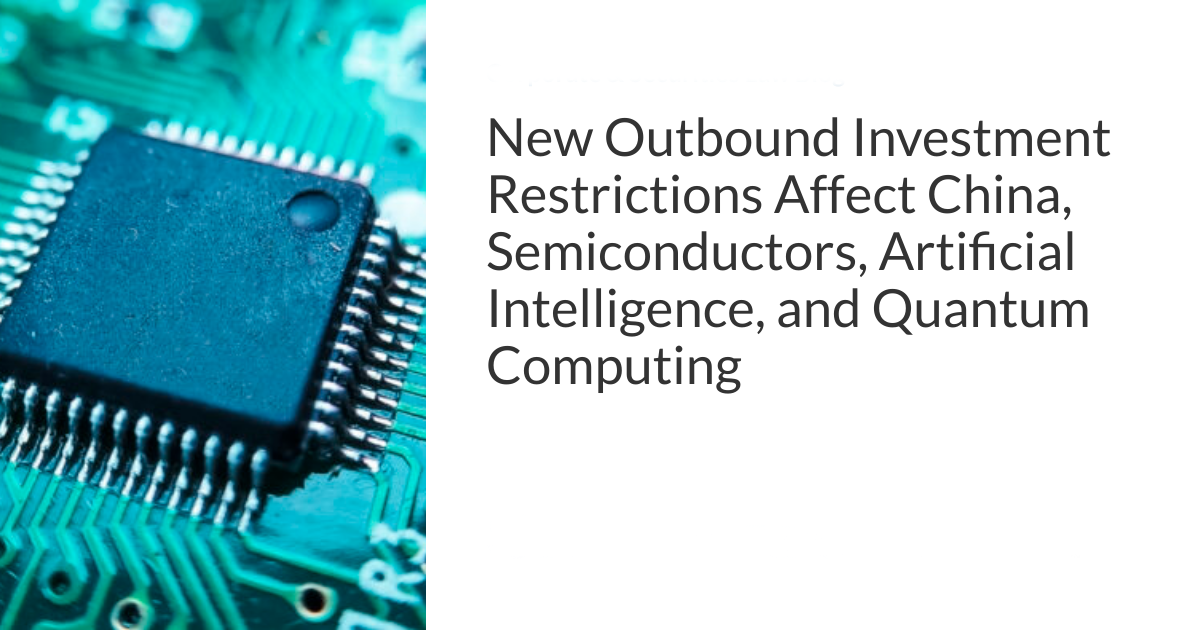
U.S. President Joe Biden issued an executive order the other day on establishing mechanisms for outbound investment screening. He imposed restrictions on investments by Americans in Chinese semiconductors and microelectronics, quantum information technology and artificial intelligence sectors, and he asked domestic companies to report to the U.S. Treasury about their investments in businesses related to artificial intelligence and semiconductor technologies. The announcement immediately attracted wide international attention, and even a number of domestic institutions in the United States raised questions.
The move indicates that U.S. government controls targeting China have expanded from commodities and trade in technology to finance and investment, in an attempt to prevent the Chinese side not only from legally purchasing what the U.S. side calls advanced technology and equipment but also from acquiring the funds needed for developing related technologies in compliance with market rules. All this is done despite the fact that U.S. capital accounts make up only a small proportion in those fields.
Biden’s order also suggests that regulation of outbound investments by the U.S. government will become increasingly mandatory and carry a thicker color of central planning in the future. This will more seriously abuse basic rules of market competition, which is what the U.S. government had been fighting. Implementing such restrictions will not only burden the U.S. government with heavy administrative costs but also impose on the U.S. as a country a heavy additional moral burden.
Let’s first take a look at the administrative cost, the items of which may be as many as the diodes hidden in a microchip. Treasury Secretary Janet Yellen once responded to a question about outsider reactions to the move at the G20 meeting in India, saying the ultimate scope of its influences will be relatively narrow, and it will focus on some sectors rather than impose extensive control — indicating the U.S. government would come up with a compliance guide. As planned, the executive order will be subjected to public review and detailed rule-making procedures, with implementation beginning around 2024.
We don’t know sufficiently about the process of U.S. government decision-making, but can easily find out the enormous scale of the industries involving semiconductors and microelectronics, quantum information and AI, how fast they change and how difficult it is to screen corresponding projects. World Semiconductor Trade Statistics divides semiconductor products into four major categories: integrated circuits, discrete devices, optoelectronic devices and sensors, which are very small but require an extraordinarily extensive industry chain to produce.
The size of the global market for integrated circuits reached $480 billion in 2022, featuring short life cycles and rapid iteration, likely involving hundreds of thousands, even millions, of companies. It is not easy to identify the exact sectors for investment. As AI enters a stage of high-speed advancement, disruptive technologies are emerging one after another, so it won’t be easy to accurately define which ones have military potential or connections. This may be one of the reasons why the new move has been proposed at such a slow pace.

Since the U.S. government seems determined to implement it, however, similar policies may ensue in the future. The U.S. government and its enforcement arms will find the burden growing heavier on their backs and will finally collapse because of it. Historically, many countries have collapsed thanks to excessive self-confidence and mammoth administrative costs.
American institutional investors and technology firms, as well as U.S. allies, are all trying to figure out the specifics of the new regulations. Enterprises that violate corresponding rules will face heavy fines, and U.S. allies will need to be fully informed, or they will not only lose money but will also sink in a passive position in bilateral relations.
Second, let’s look at the moral burden implementing such rules may incur. A senior U.S. official reportedly called the executive order a national security action, not an economic one. The U.S. side obviously wants the international community to focus on the second half, agreeing that this is a special move the U.S. is making out of national security concerns, rather than as a fundamental reversal in economic policy. Other fields will continue following market rules and that of openness.
Actually, understanding the second half isn’t that important, because U.S. national security is based on its own definition. The U.S. concept of national security has gone far beyond the way it’s understood by other countries. It is national security surrounding hegemony preservation, the core connotation of which is maintaining power. To the U.S., an outsider doesn’t need to directly harm its nationals, territories or corresponding interests to qualify as a national security threat. Simply endangering its international power constitutes a threat to U.S. national security. Such a definition is highly subjective.
Chinese commercial development of such technologies as integrated circuits, AI and quantum computing will not endanger U.S. nationals, territories or national interests. Instead it will increase the welfare of all people in the world, including Americans. But some Americans believe this will undermine U.S. global hegemony and therefore must be restricted, which is a typical abuse of national security.
Meanwhile, the U.S. official’s remarks showed explicitly that, in the current U.S. narrative, economic rules no longer take precedence but have given way to national security. This will raise doubts in the international community. If the U.S. believes its international power is compromised, it will trample on principles of free competition and openness. Foreign investment will face huge political uncertainty, and handling relations with the U.S. will require vigilance about America’s duality and changeability. This is the moral cost of the U.S. undertaking unilateral sanctions. This will erode U.S. moral standing in the long run.
American officials and corporate executives generally have received a higher education and are good at cost-benefit calculation. They can find balance points and arrive at decisions scientifically. Therefore, in the face of more and more restrictions on foreign involvement, both the U.S. government and companies should try to find out whether such measures increase public welfare in the U.S., and whether they find the balance point. After all, those who will be sanctioned for violations won’t be Chinese companies or institutions, and they have plenty of time to find other sources of funding.
